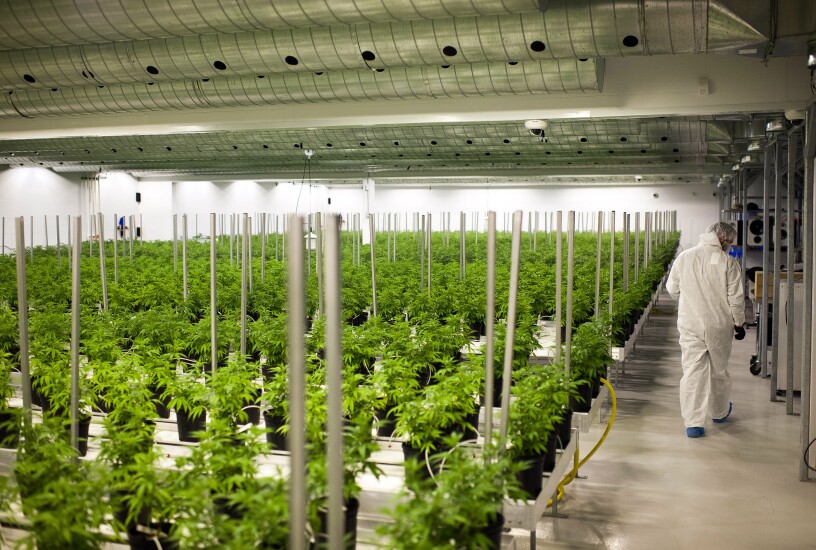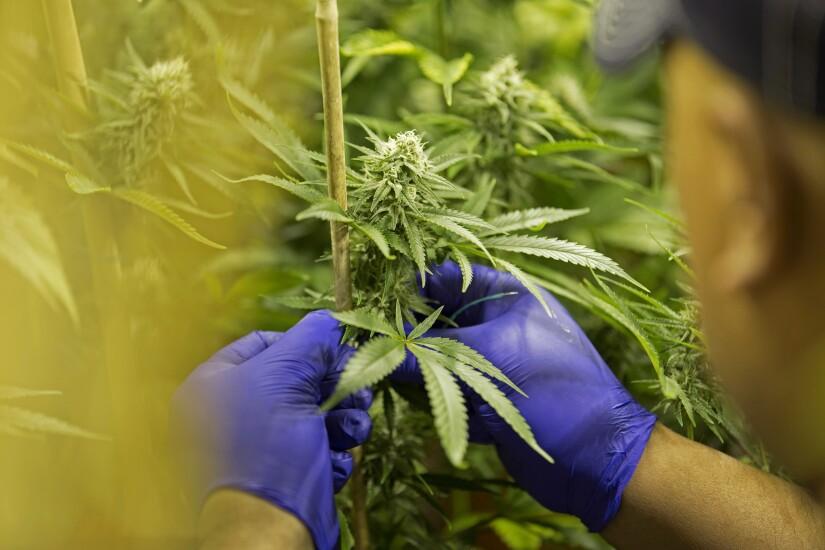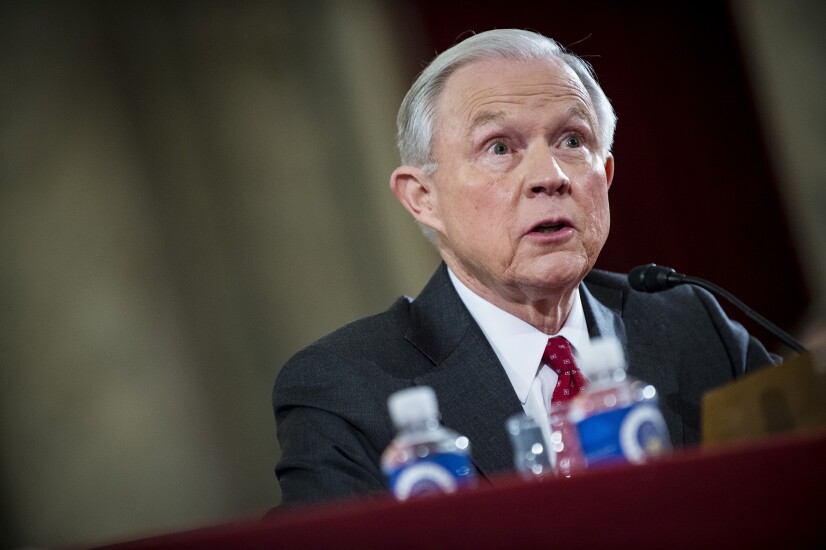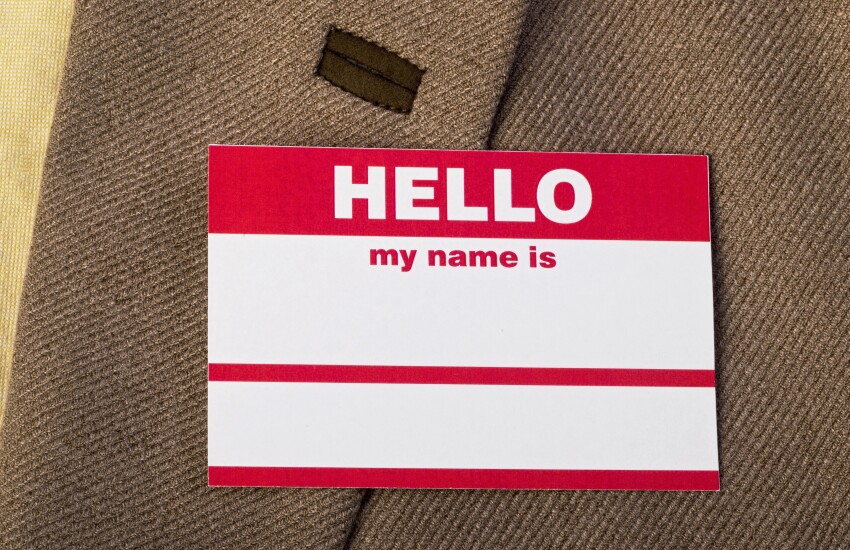

Going (almost) digital
This places marketing automation provider
So what does the platform's "Buy Now" button actually do?
"Currently, the Buy Now button is a fast track to the shopping cart, allowing the customer to quickly add product to their basket and proceed to the last step of the order flow with one click or tap," said David Champion, Baker's co-founder and chief product officer. "The payment transaction, for now, still happens during pickup or drop-off."

Cashless ATMs
One idea is the
Customers run transactions at the ATM in the dispensary, which prints out a receipt for the approved transaction. The customer then takes the receipt to the cashier to make a purchase and receive change.
The transaction at the ATM is passed from the customer's bank account to the merchant's bank account via automated clearing house transfers.

Going big on compliance
“You’re starting to see a tendency, a healthy capitalistic tendency, for banks and credit unions that know they are missing out on or losing money by not working with marijuana businesses,” said Chistov.
And now
The influx of competition has also lowered the fees for the grow house; Honest Marijuana now pays about 1% for payment processing, down from 4.5% it paid previously.
Despite this progress, most financial services providers still see compliance as a hurdle. Only about 300 of the more than 11,000 banks currently operating in the U.S. work with legal pot vendors.
“Paradoxically, most of the institutions nationwide that offer business to marijuana suppliers are small and very unhealthy; most are the ones desperate for income,” said Lamine Zarrad, founder and CEO of Tokken, a Denver-based blockchain startup.

Stored value
In 2014, Cal-Bay International developed the CB Green Card to facilitate purchases of medical and recreational marijuana from licensed dispensaries. It also designed an electronic payment method that could operate on Cal-Bay's payment processing terminal.

Learning from example
First off, this up-and-coming market—which is still illegal under federal law—requires payment companies to have exceptionally strong underwriting, due diligence and risk-management practices. They also need a thorough understanding of applicable laws, regulations and card brand rules. Additionally, it’s critical that they advocate for cannabis merchants proactively and reactively, if issues arise.
“This is how the other high-risk industries have managed to thrive in a high-risk space,” says Anthony L. Ogden, an attorney in Beverly Hills, California, who runs BankCardLaw.com, a provider of legal and consulting services to the payments industry.
Certainly, banks and payment companies operating in, or considering, the cannabis space have special considerations. A lot rides on what stance the Trump administration takes. Despite the substance's illegal status under federal law, the Obama administration decided not to interfere with state laws legalizing cannabis. However, that’s subject to change under a new president who has strongly criticized illegal drug use. Also notable is that Trump’s attorney general pick, Jeff Sessions, is a politician with
“Payment companies are operating in a legal gray area that extends from the Obama administration,” Ogden says.

Creative banking
The Dutch city is known for its lax laws surrounding soft drugs like cannabis and psychedelic mushrooms. And it’s been that way for several decades. But even still, cannabis companies have trouble landing banking relationships, much
“It’s quite a complex issue just the same as in the States,” said Oliver Margerison, director at Amsterdam Genetics, a producer of cannabis products that are then sold to coffeeshops and dispensaries. “Every cannabis-related company in the Netherlands has or has had issues with banking facilities.”
How much contention with financial institutions is dependent on the sector the business falls in, and whether or not it can be fully honest about its operations, said Margerison.
For instance, coffeeshops which also sell food and drink are categorized as horeca businesses, a sector that also includes restaurants that don’t sell cannabis.
“If you say to the bank you are a coffeeshop, there is no way you will acquire a bank account or any other facilities,” said Margerison. “If you say to a bank you are a horeca company and they do not delve deeper, you most likely will acquire the facilities and once you have received the facilities, it is very difficult for the bank to then retract the facilities if they have not done a full investigation into the company in the first instance.”
This legal loophole allows some cannabis companies to secure bank accounts and accept PIN debit transactions.

The name game
Janell Thompson and Katarina Maloney say choosing the "wrong" name for their company was all it took to run afoul of banks and be labeled as co-owners of a high-risk business.
That name is HempHealthInc.com, an online business that sells cannabis-related products but is not a medical marijuana dispenser. Its name has led to
Thompson and Maloney operate businesses under the names Hookahzz LLC and JKWholesale Inc.
After two years, JPMorgan Chase closed the company's business accounts without specifying a reason, Thompson said, whereas PayPal cited the sale of hemp-related products for not doing business with JKWholesale (
"We know we are caught in Choke Point, but we are not medical marijuana or anything illegal," Thompson said. "We are completely clear legally, but the banks and PayPal don't differentiate it, mainly because of the word hemp in our name."





